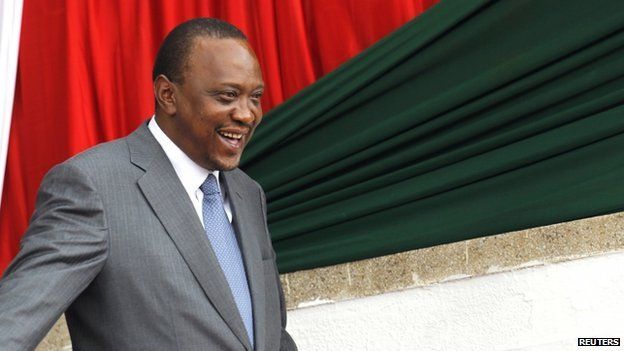ICC cautions Kenya on Kenyatta media leaks
- Published

The International Criminal Court (ICC) has warned Kenya's government against leaking information from President Uhuru Kenyatta's case to the media.
Mr Kenyatta became the first serving head of state to appear at an ICC hearing earlier this month.
He denies charges of crimes against humanity, including inciting violence after Kenya's disputed 2007 polls.
But the court says it is concerned over the Kenyan government's ability to ensure confidentiality of the case.
In a report released on Tuesday, the ICC's Trial Chamber V specifically referred to the leaking of details of a confidential request from the ICC judges to help freeze or seize President Kenyatta's assets.
The request was issued under seal, however, the Kenyan authorities filed public documents in 2013 referring to the request, which Mr Kenyatta's lawyers later apologised for.
Details of the request later resurfaced in Kenyan media in April and September this year, in what the court described as "a pattern of information contained in confidential filings being leaked to the media, in some cases even before the filings have been notified to the chamber".
It subsequently issued a "formal caution" to the Kenyan government, noting "cumulative inattention to the taking of appropriate measures to ensure the confidentiality of proceedings".
Mr Kenyatta is facing five charges relating to ethnic violence after the 2007 elections that left some 1,200 people dead and 600,000 displaced - the worst violence in Kenya since independence in 1963.
On 8 October, he was summoned to appear at an ICC "status conference" - a pre-trial hearing.
But correspondents say the case has reached deadlock, with the prosecution accusing the Kenyan government of withholding vital evidence and the defence saying that without evidence, there should be no trial.
- Published8 October 2014
- Published10 September 2013
- Published5 December 2014
- Published11 October 2013
- Published25 June 2015